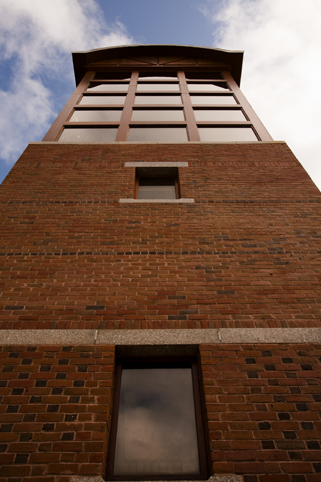Mutations in Lama1 disrupt retinal vascular development and inner limiting membrane formation.
Document Type
Article
Publication Date
2010
Keywords
Amino-Acid-Sequence, Animals, Astrocytes, Basement-Membrane, Electroretinography, Genetic-Complementation-Test, Humans, Laminin, Mice-Inbred-C57BL, Mice-Inbred-DBA, Molecular-Sequence-Data, Mutation-Missense, Phenotype, Protein-Isoforms, Retina, Retinal-Diseases, Retinal-Vessels, Sequence-Alignment, Transgenes
First Page
7697
Last Page
7711
JAX Source
J Biol Chem 2010 Mar; 285(10):7697-711.
Abstract
The Neuromutagenesis Facility at the Jackson Laboratory generated a mouse model of retinal vasculopathy, nmf223, which is characterized clinically by vitreal fibroplasia and vessel tortuosity. nmf223 homozygotes also have reduced electroretinogram responses, which are coupled histologically with a thinning of the inner nuclear layer. The nmf223 locus was mapped to chromosome 17, and a missense mutation was identified in Lama1 that leads to the substitution of cysteine for a tyrosine at amino acid 265 of laminin alpha1, a basement membrane protein. Despite normal localization of laminin alpha1 and other components of the inner limiting membrane, a reduced integrity of this structure was suggested by ectopic cells and blood vessels within the vitreous. Immunohistochemical characterization of nmf223 homozygous retinas demonstrated the abnormal migration of retinal astrocytes into the vitreous along with the persistence of hyaloid vasculature. The Y265C mutation significantly reduced laminin N-terminal domain (LN) interactions in a bacterial two-hybrid system. Therefore, this mutation could affect interactions between laminin alpha1 and other laminin chains. To expand upon these findings, a Lama1 null mutant, Lama1(tm1.1Olf), was generated that exhibits a similar but more severe retinal phenotype than that seen in nmf223 homozygotes. The increased severity of the Lama1 null mutant phenotype is probably due to the complete loss of the inner limiting membrane in these mice. This first report of viable Lama1 mouse mutants emphasizes the importance of this gene in retinal development. The data presented herein suggest that hypomorphic mutations in human LAMA1 could lead to retinal disease.
Recommended Citation
Edwards MM,
Mammadova-Bach E,
Alpy F,
Klein A,
Hicks WL,
Roux M,
Simon-Assmann P,
Smith RS,
Orend G,
Wu J,
Peachey NS,
Naggert JK,
Lefebvre O,
Nishina PM.
Mutations in Lama1 disrupt retinal vascular development and inner limiting membrane formation. J Biol Chem 2010 Mar; 285(10):7697-711.


